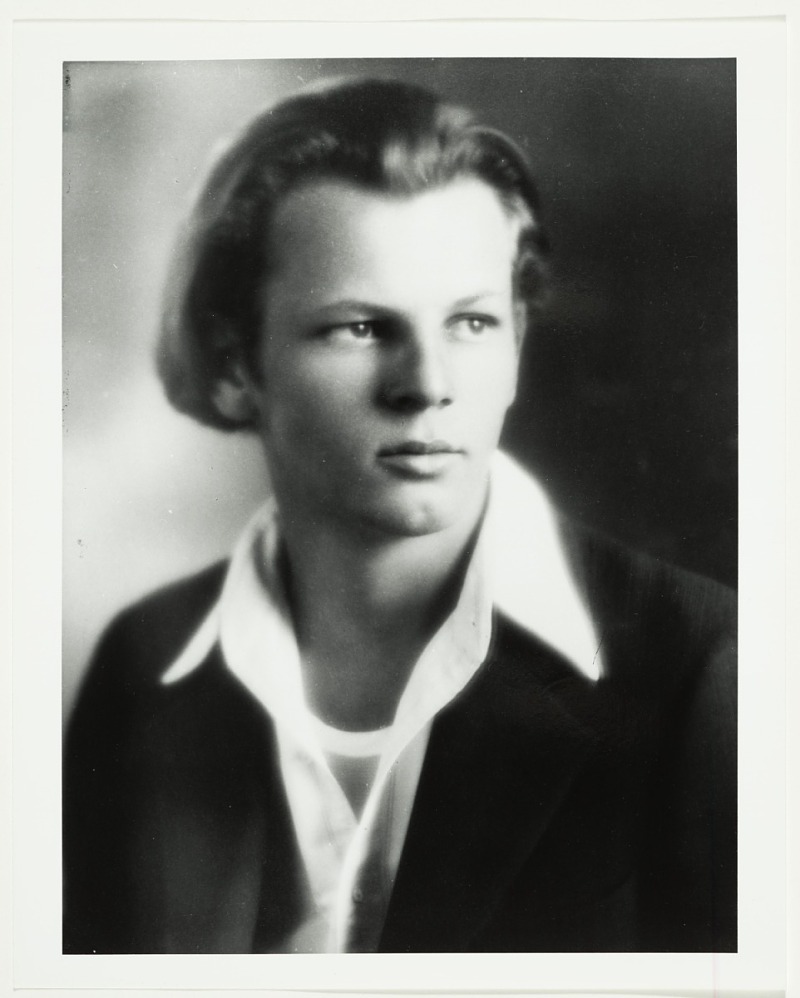Jackson Pollock Berühmte Zitate
in Bernhard Kerber: Amerikanische Kunst seit 1945 - ihre theoretischen Grundlagen. Reclam Stuttgart 1971. S. 88
Original englisch: "A while ago a critic wrote that my paintings have no beginning and no end. He didn't mean it as a compliment, but it was. It was a fine compliment." - Berton Roueché: Unframed Space. NEW YORKER 5. August 1950; zitiert nach Pepe Karmel, Kirk Vamedoe: Jackson Pollock - Interviews, Articles and Reviews. Museum of Modern Art New York 1999. p. 278
Zitate mit Quellengabe
in Jürgen Claus: Theorien zeitgenössischer Malerei in Selbstzeugnissen. Rowohlt 1963. S. 63, auch in Kammerlohr, "Epochen der Kunst", Band 5; Oldenbourg Verlag 1995
Original englisch: "When I am in my painting, I'm not aware of what I'm doing. It is only after a sort of 'get acquainted' period that I see what I have been about." - My Painting, in: Possibilities I, 1947-48, "Problems of Contemporary Art" v. 4, Georg Wittenborn Inc. New York. Zitiert in Ellen H. Johnson: American artists on art from 1940 to 1980, 1982. p. 4,
Zitate mit Quellengabe
Jackson Pollock: Zitate auf Englisch
In 'Possibilities', Vol. 1, no 1, winter 1947-48, p. 79; as quoted in Jackson Pollock (1983) by Elizabeth Frank, p. 68
1940's
In an interview (1956); published in Conversations with Artists, by Seldon Rodman, New York, Capricorn Books, 1961, pp. 84-85
1950's
Quelle: 1950's, Interview by William Wright, Summer 1950, pp. 139-140
In his application for a grant given by the Guggenheim Foundation 1944; as quoted in Abstract expressionism, Barbara Hess, Taschen Köln, 2006, p. 9
1940's
Quelle: 1950's, Interview by William Wright, Summer 1950, pp. 142-143
Quelle: 1950's, Interview by William Wright, Summer 1950, p. 144
Quote around 1948-'49; as cited in Abstract Expressionism (1990), David Anfam, p. 121
Pollock wrote this text on the back of a photo of himself taken in his own studio.
1940's
As quoted in Francis V. O'Connor (1967) Jackson Pollock, p. 79
in posthumous publications
Quote of Pollock, from Twentieth-century American painting, Gail Levin, The Thyssen-Bornemisza collection. London, 1987, p. 267
1940's, Art and Architecture (1944)
Quote in Pollock's letter, Los Angeles 22 October, 1929 to Charles and Frank in New York; published in: Jackson Pollock (2011) American Letters: 1927-1947. p. 16
1925 - 1940
In an interview (1956); published in Conversations with Artists, by Seldon Rodman, New York, Capricorn Books, 1961, pp. 84-85
1950's
1947, on his painting 'She wolf'
As quoted in Abstract Expressionism, David Anfam, Thames and Hudson Ltd London, 1990, p. 87
1940's
Quote from Pollock's letter to Alfonso A. Ossorio and Edward Dragon (1951); as quoted in Abstract Expressionism (1990) by David Anfam, p. 175
1950's
As quoted in Abstract Expressionism: Creators and Critics, ed. Clifford Ross, Abrahams Publishers, New York, 1990, p. 138
1940's, Art and Architecture (1944)
“My concern is with the rhythms of nature... I work inside out, like nature.”
Quoted in Leonhard Emmerling (2003) Jackson Pollock: 1912-1956 Taschen, p. 48
in posthumous publications
Quelle: 1950's, Interview by William Wright, Summer 1950, p. 140
“I can control the flow of paint; there is no accident..”
1940's
Quelle: Jackson Pollock and Lee Krasner, Ines Janet Engelmann, Prestel Verlag Munich, 2007, p. 54
In 'Unframed Space' interview with Berton Roueché, The New Yorker (5 August 1950); as quoted in The Grove Book of Art Writing: Brilliant Words on Art from Pliny the Elder to Damien Hirst ed. Martin Gayford and Karen Wright [Grove Press, 2000, ISBN 0-802-13720-2], p. 546
1950's
Quote from 'Possibilities' Vol. 1, no 1, winter 1947-48, p. 79; as cited in 'Jackson Pollock: is he the greatest living painter in the United States?', in 'Life' (8 August 1949), pp. 42-45
1940's
Quelle: 1950's, Interview by William Wright, Summer 1950, p. 144
As quoted in Abstract Expressionism: Creators and Critics, ed. Clifford Ross, Abrahams Publishers, New York, 1990, p. 138
1940's, Art and Architecture (1944)
Attributed by Lee Krasner (1964) in " Oral history interview with Lee Krasner, 1964 Nov. 2-1968 Apr. 11 http://www.aaa.si.edu/collections/oralhistories/transcripts/krasne64.htm", interview with Dorothy Seckler for the Smithsonian Institution Archives of American Art.
In Krasner's words: 'When I brought Hofmann up to meet Pollock and see his work which was before we moved here, Hofmann's reaction was — one of the questions he asked Jackson was, do you work from nature? There were no still lifes around or models around and Jackson's answer was, 'I am nature.' And Hofmann's reply was, 'Ah, but if you work by heart, you will repeat yourself.' To which Jackson did not reply at all.'
in posthumous publications
Quelle: 1950's, Interview by William Wright, Summer 1950, p. 144
remark on his former art-teacher w:Thomas Hart Benton
As quoted in Abstract Expressionism: Creators and Critics, ed. Clifford Ross, Abrahams Publishers, New York 1990, p. 137
1940's, Art and Architecture (1944)
Quote of Pollock in a radio interview (1951); as quoted in Lives of the Great Twentieth Century Artists', (1986) Edward Lucie-Smith, p. 263
1950's
Quelle: 1950's, Interview by William Wright, Summer 1950, pp. 139-140
Quelle: 1950's, Interview by William Wright, Summer 1950, p. 145
